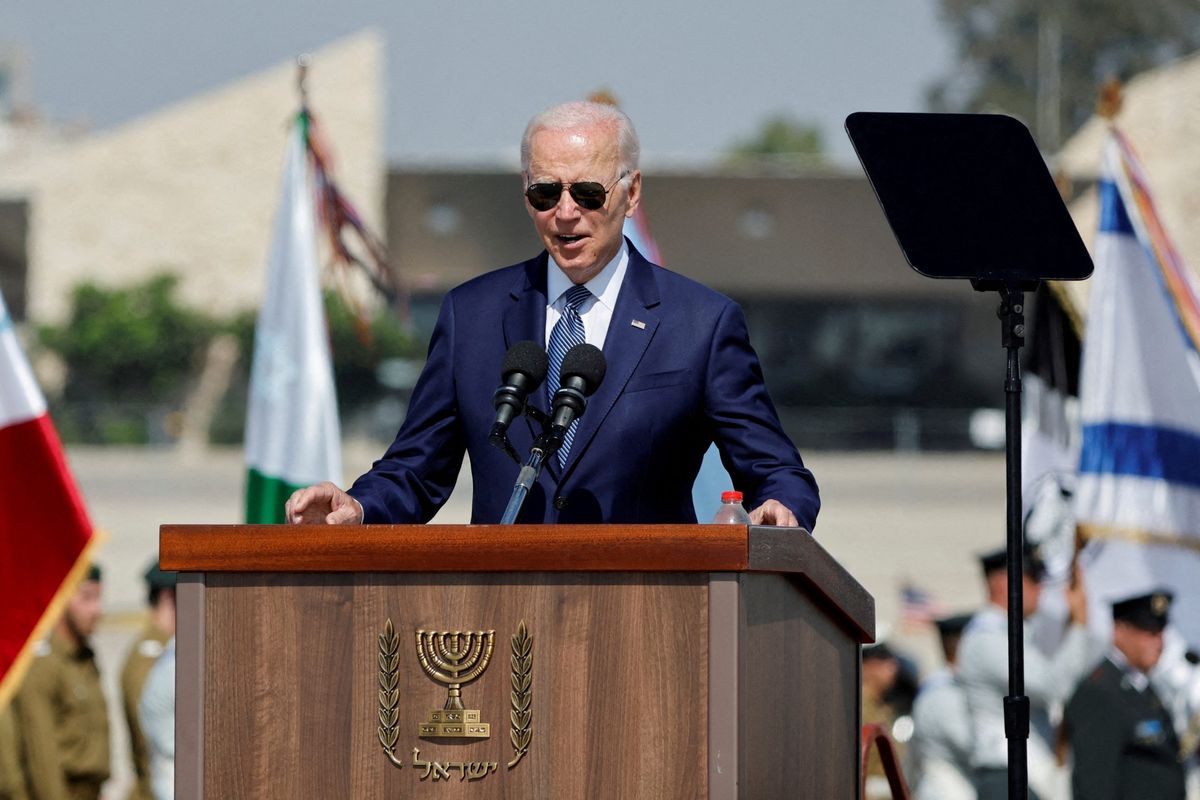What to expect from Joe Biden’s trip to the Middle East

A few minutes every morning is all you need.
Stay up to date on the world's Headlines and Human Stories. It's fun, it's factual, it's fluff-free.
Joe Biden started a trip to the Middle East on Wednesday. The trip started in Israel, where he pledged to deepen relations between the US and Israel and with other countries in the region. He also visited the World Holocaust Remembrance Center in Jerusalem and received a briefing on defense systems in place there. After Israel, Biden will go to Palestinian-occupied territory in the West Bank. Then he’ll go to Saudi Arabia, where he’ll attend a summit with other regional leaders.
His plans to go to Saudi Arabia have drawn backlash. The trip’s intent seems partly to be for the US to ask the country to keep the oil flowing through the intense sanctions on Russia. But experts have been worried that it looks weak for Biden to “kiss the ring" and that it won’t end up doing much in the end. It’s worth keeping in mind that during the campaign, Biden promised to turn Saudi Arabia into an international pariah for its assassination of journalist Jamal Khashoggi.
Notably, Biden won’t be dealing much with the problem of Iran, which is heavily sanctioned by the US, and also, another country where the US could theoretically find some oil to ease domestic gas prices.
Key comments:
“As president, it is my job to keep our country strong and secure," said Biden in an Op-Ed on Sunday. “To do these things, we have to engage directly with countries that can impact those outcomes. Saudi Arabia is one of them, and when I meet with Saudi leaders on Friday, my aim will be to strengthen a strategic partnership going forward that’s based on mutual interests and responsibilities, while also holding true to fundamental American values."
“One of the reasons why Joe Biden is going to be going to Saudi Arabia is to try to bring Riyadh a little closer to the US and other Western countries, geopolitical orbits," said Giorgio Cafiero, the CEO of Gulf State Analytics. “And this comes at a time in which the US has been very concerned about Saudi Arabia, as well as other Arab states moving closer and closer to China and Russia. So I think this trip is very important from the standpoint of the Biden administration’s efforts to really assert US influence in the Gulf region."




Comments ()